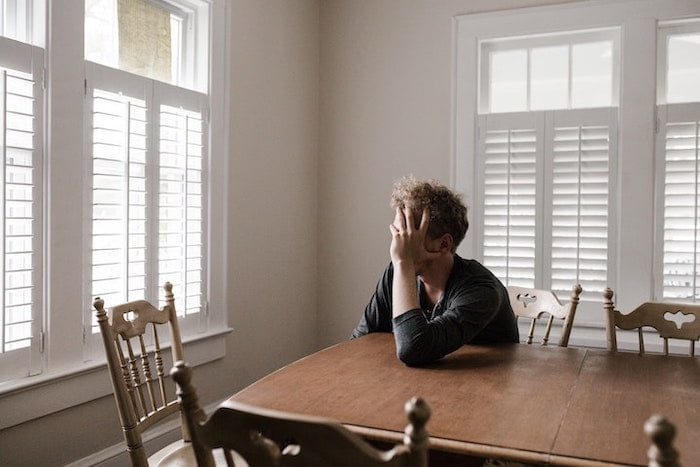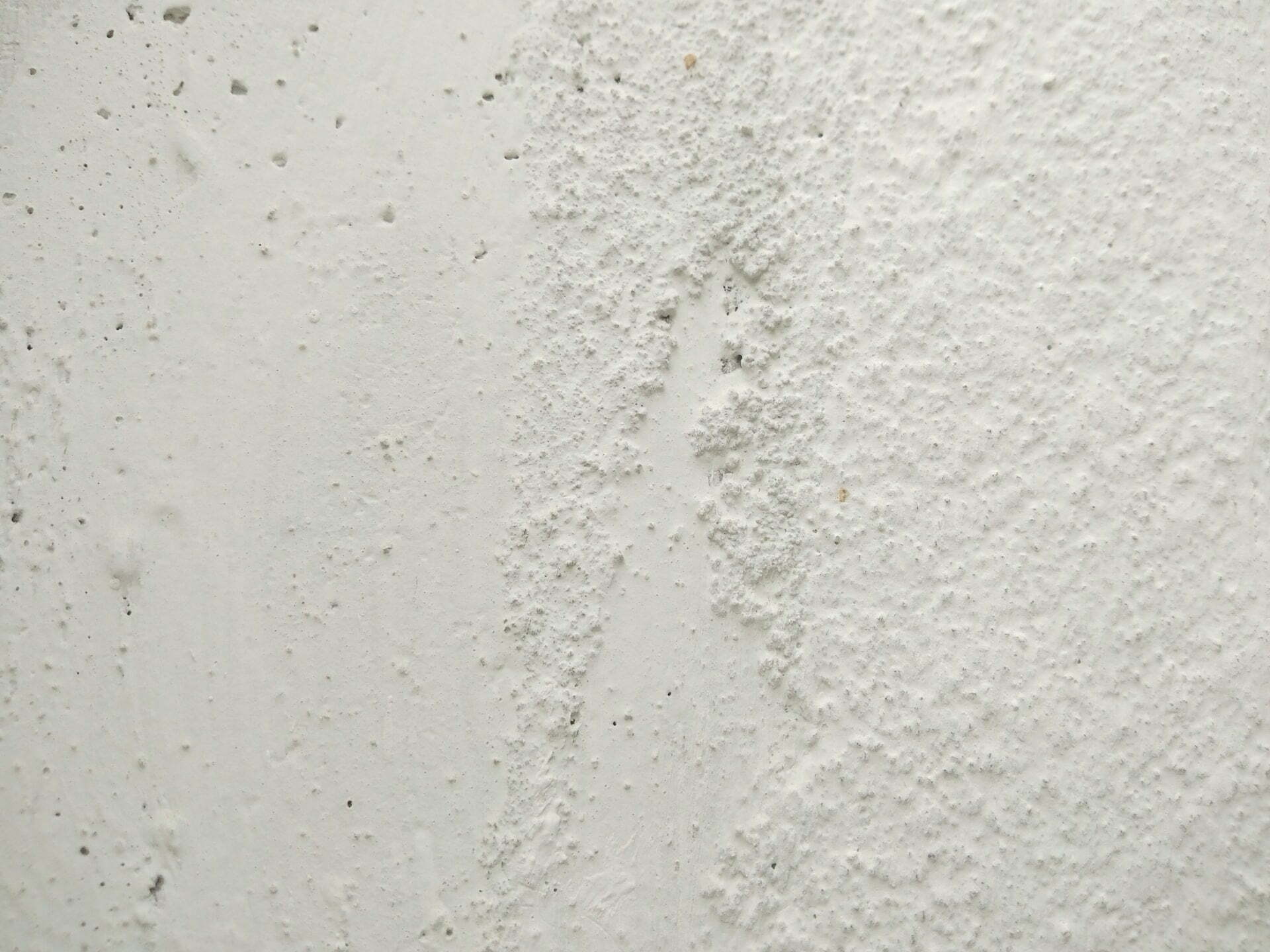Drug & Alcohol Rehab in Sussex
Around 275,896 people every year have been in contact with drug and alcohol services, with around 130,490 adults entering treatment. [1]
This means that drug and alcohol rehab in Sussex and all over the UK is essential to many who have substance use issues and need help to get sober and beat the incredibly difficult cycle of addiction.
If you want support getting sober, are concerned about a loved one or are curious to see what support is available for addiction, then find out more below and get started on your recovery journey today.
Before Rehab: What is an Intervention?

If you are struggling with addiction and want to explore your rehab options, then an intervention is not needed. Scroll down to the ‘how to prepare for rehab’ paragraph below, and you can see how to get started on your journey to recovery.
However, if you have a loved one that you are concerned about and who you think might need addiction support, then an intervention might be necessary.
Before exploring this option, try to have an open and honest conversation with your loved one regarding their substance use.
Approach the topic carefully and casually at first to see if they open up on their own. If they do not, then discuss your concerns in a supportive way in a safe environment with your loved one.
Many people who struggle with addiction problems experience negative feelings of shame, denial and guilt surrounding their addiction, so they might be reluctant to discuss it.
In this case, a professional intervention can help. A professional intervention is led by a professional interventionist, who sits down with the person and their family in order to mediate the serious conversation about them getting help.
Once together, the family members then share their concerns with the person and their support for them with pre-written letters of love and encouragement. Discussing addiction can be very difficult for the person themselves and their loved ones.
The interventionist therefore, might go through the CRAFT approach with you and your family, so that you are confident in how to discuss addiction with someone struggling with it.
An intervention can be a crucial motivator for many people struggling with addiction, and with a professional interventionist in Sussex you don’t have to navigate this difficult situation alone.
At OK Rehab, we offer free advice from a team of non-judgemental professionals, many of whom are in recovery and understand how hard it can be to change your relationship with addiction.
To find out more about drug and alcohol rehab in Sussex, simply reach out to our 24/7, confidential hotline on 0800 326 5559.
Are You Addicted?

If you are unsure whether you are addicted to a substance or not, then visit your GP to receive or be referred for a diagnosis.
They (or the referred psychologist) are likely to use diagnostic tools such as the CAGE questionnaire and refer to the DSM V to see if you meet the criteria for a substance use disorder.
You can also discuss your symptoms with the OK Rehab team, or talk directly to a rehab clinic or support service in Sussex for advice on whether you need help and what kind of help you need. If you are concerned about your substance use, you will likely benefit from some form of treatment.
Although getting a diagnosis and talking about your addiction problems with others might seem scary, it will be so much better in the long run.
With a diagnosis, you can gain access to a lot more support services, particularly therapies and treatments in rehab.
Does Health Insurance Cover Drug and Alcohol Rehab in Sussex?

If you have private health insurance, make sure you check your insurance policy to see if you could get your rehab costs covered on insurance.
Several UK health insurance companies do cover addiction treatment, including BUPA, AXA PPP, WPA and Aviva, however whether you are covered will depend on your policy and level of insurance.
If you are unsure, it is worth contacting your health insurance provider to see if you are covered or not.
At OK Rehab, we offer free advice from a team of non-judgemental professionals, many of whom are in recovery and understand how hard it can be to change your relationship with addiction.
To find out more about drug and alcohol rehab in Sussex, simply reach out to our 24/7, confidential hotline on 0800 326 5559.
Is There Drug and Alcohol Rehab in Sussex Available on the NHS?

If you do not have health insurance and can’t afford or don’t want to go private, then the NHS is on hand to support you in your addiction treatment.
Drug and alcohol rehab in Sussex includes many NHS options, often working in conjunction with local charities.
For example STAR Drugs and Alcohol Service in East Sussex (who are a branch of Change, Grow, Live). [2]
To access NHS drug and alcohol addiction in Sussex, you can get in touch with your GP to be directed to NHS addiction treatment, get in touch with these services yourself or discuss options with our team.
You can get funding for inpatient and outpatient treatment via the NHS, and our team or your GP will be able to discuss the best type of treatment for you in Sussex.
However, most funding for NHS treatments is in outpatient treatment as inpatient places are limited in Sussex.
There is also likely to be a long waiting list of 6 months to 1 year for treatment due to a lack of NHS resources and the amount of people needing this service.
NHS treatment is a great resource for those who need addiction treatment in the UK, and there are several options for outpatient treatment and funding for inpatient treatment when needed.
However, long waiting lists and primarily outpatient care are drawbacks for those seeking treatment.
How Long does Drug and Alcohol Rehab in Sussex Last?

The length of time that you will be in addiction treatment overall varies widely, depending on your personal circumstances, the severity of your addiction and what treatments you are having.
The first part of your treatment program is likely to be a detox, which will last between 3 and 10 days depending on the individual, severity of addiction and the substance. For this reason the minimum stay for alcohol rehab is 7 days to ensure a safe detox.
The minimum recommended stay in Sussex for any drug or alcohol inpatient is 28 days, as this allows your body to detox from the substance and your mind to get help for the addiction through therapies.
For this reason most inpatient stays will be around 28 days, but can be up to 90 days. There are also sober living facilities and halfway houses in Sussex which offer longer term treatments to give those with housing difficulties and other issues an opportunity to get sober, develop key skills and live independently.
Outpatient treatments in Sussex can go on for different amounts of time, from weeks to months, depending on the type of treatment and what it is needed for.
Other support services are there as and when needed, particularly services such as support groups dedicated to preventing relapse and working towards the future.
During your assessment, a personalised treatment plan will be formulated with you which will include the length of time it is recommended that you spend in treatment.
At OK Rehab, we offer free advice from a team of non-judgemental professionals, many of whom are in recovery and understand how hard it can be to change your relationship with addiction.
To find out more about drug and alcohol rehab in Sussex, simply reach out to our 24/7, confidential hotline on 0800 326 5559.
NHS vs Private Addiction Treatment in Sussex

You have the option of NHS or private drug and alcohol rehab in Sussex, both of which are excellent ways to get professional support for your addiction.
They provide top quality care and bring staff with years of professional experience to help you in your recovery.
However, there are some key differences between NHS and private rehab in Sussex which are useful to know so that you can make the right decision for you.
Private Addiction Treatment in Sussex
Pros
- Fast or immediate treatment available with most private rehabs in Sussex taking patients in within 24 hours to 1 week
- Wide variety of treatments available from cognitive behavioural therapy and addiction counselling to holistic therapies such as meditation, equine and art therapy
- Access to wellbeing facilities such as spas and swimming pools
- Greater control over what treatments you have, how long you stay and the type of accommodation you stay in
- Some people are able to undergo private treatment in Sussex covered by their health insurance
Cons
- Costs of between £3,000-£6,000 for a 10 day detox in Sussex and £8,000 to £12,000 for a 28 day stay in Sussex
- More freedom over when and where you go and the treatments you have can lead some patients to putting off rehab or choosing treatments they want rather than what they might need.
NHS Treatment in Sussex Pros and Cons

Pros
- NHS treatment is free as it is fully funded by the NHS, and funding is available for inpatient and outpatient treatment in Sussex
- The NHS works with several charities who offer free outpatient treatments including support groups
- Mental health support can also available on the NHS to treat co-occurring conditions
- There are NHS services and charitable organisations all over the UK so you are likely to find one local to you in Sussex
- You can receive NHS funding the stay at a private rehab centre.
Cons
- There are often long waiting lists of between 6 months to 1 year to get treatment
- Treatment is often more limited, with the majority of services being for outpatients
- There will be less facilities, activities and comforts than in a private rehab
- You are likely to get less time with a therapist one to one due to the amount of clients needing treatment and cost of private sessions
Drug and alcohol rehab in Sussex is definitely worth pursuing, whether it is private or on the NHS. You can discuss your options with the UK Rehab team about NHS and private addiction treatment in your area.
At OK Rehab, we offer free advice from a team of non-judgemental professionals, many of whom are in recovery and understand how hard it can be to change your relationship with addiction.
To find out more about drug and alcohol rehab in Sussex, simply reach out to our 24/7, confidential hotline on 0800 326 5559.
Inpatient and Outpatient Treatment in Sussex

Within both NHS and private rehab, there are both inpatient and outpatient options available.
In private rehab, you will likely have the option of either type of treatment, however due to a lack of NHS resources, inpatient treatment can be difficult to get funding for.
Inpatient treatment refers to treatment carried out while a patient stays at a rehab centre overnight.
This is often the preferred treatment for severe cases of addiction and circumstances when a person’s home environment or social circle could be a contributing factor to their addiction.
Other factors such as age, co-occuring mental health conditions, physical health and safety can also mean that a person is recommended inpatient treatment.
Inpatient treatment usually means a 7-28 day stay in a Sussex rehab clinic, in either a private or shared room, with access to clinic facilities.
The patient remains in the clinic during their detox and for their addiction therapies until the course of treatment is over.
Outpatient treatment is treatment given when a patient does not stay at the clinic overnight, and instead comes into the rehab centre for treatment.
The amount of time a patient spends coming into treatment can vary from intensive outpatient treatment of up to 5 hours a day for up to 6 days a week to less intense programs of 1-2 hours for 1-3 days a week.
There are different levels of outpatient treatment including part hospitalisation, when a patient stays in the rehab clinic for a short period (e.g. a 10 day detox) and then goes home for the rest of their treatment.
Halfway houses and sober living facilities in Sussex are also part way between inpatient and outpatient treatment, and are residential places where people who do not have stable accommodation can stay, gain sobriety, get treatment and develop key work and life skills.
Whether you get inpatient or outpatient treatment, and how long or intense the treatment is, will be discussed with you and put into your personal treatment plan.
Alcohol Detox & Rehab in Sussex

Alcohol addiction can have a hugely detrimental effect on one’s life in a number of ways, including physically, mentally, financially and socially.
However, through alcohol rehab, you can get your life back from the devastating effects of alcohol addiction.
Although alcohol is frequently consumed in society and considered safe, withdrawing from alcohol can be highly dangerous when addicted.
Detox for alcohol takes 7-10 days, and can be very dangerous and even fatal if not done properly under medication supervision.
Depending on the severity of your alcohol addiction, you might be advised to do an inpatient alcohol detox in order to reduce the risks and ensure that you have 24/7 care.
However, some patients can undergo an at-home detox, particularly if they have a mild addiction or have a close support network of friends and/or family who can care for them. Medication may still be used to relieve the side effects.
Following a successful detox, you will then go on to be treated for the psychological addiction through therapies in Sussex such as counselling, group therapy or dialectical behavioural therapy.
At OK Rehab, we offer free advice from a team of non-judgemental professionals, many of whom are in recovery and understand how hard it can be to change your relationship with addiction.
To find out more about drug and alcohol rehab in Sussex, simply reach out to our 24/7, confidential hotline on 0800 326 5559.
Rehab for Cocaine in Sussex

Around 2% of adults aged 16-59 and 4% of young adults aged 16-24 use cocaine in the UK, which although might not sound like a lot, is equal to around 860,000 people. [3]
Despite many using it as a ‘party drug’ to socialise and have a good time, there is no denying the negative effects that cocaine use and cocaine addiction has both physically and psychologically.
Cocaine use can have short term effects of an increased heart rate, higher body temperature, anxiety and paranoia.
Long term use comes with risks such as an increased risk of a fit, heart attack or stroke, damage to the cartilage in your nose, depression and anxiety. [4]
Rehab for cocaine in Sussex is similar to that of alcohol and other drug rehab, in that you will go through the initial detox period and then enter into a course of treatment to tackle the psychological effects of addiction (e.g. therapies, support groups and one to one counselling).
Although detoxing from cocaine is less physically dangerous than detoxing from alcohol or heroin, inpatient detox may still be recommended depending on your circumstances and level of addiction.
A medically assisted detox from cocaine can help your body deal with the withdrawal symptoms of cocaine such as nausea, headaches, anxiety, insomnia and depression.
Severe cases of cocaine withdrawal, or if detoxing from multiple substances, can lead to more severe withdrawal symptoms.
Rehab for Heroin in Sussex

Heroin is a highly addictive drug, which often leads users to feel a ‘rush’ of pleasure or euphoria when taking it.
However, the addictive nature of this ‘high’ means that people often build up a tolerance, leading to them needing more and more of the drug to obtain the same effects. [5]
This tolerance build up is present in many drugs, however with drugs such as heroin it can be especially dangerous due to the impact that heroin has on the body.
Heroin addiction has long term effects including collapsed veins, infection of heart lining or valves, liver and kidney disease, lung complications and abscesses, as well as the potential to fatally overdose. [5]
Withdrawal symptoms can also be severe in heroin withdrawal, and due to the body’s increasing dependence on it with increased usage, it can be dangerous. Therefore an inpatient, medically assisted detox is usually recommended.
Medications such as Methadone are used to reduce the severity of withdrawal symptoms and ensure a safe detox. [6]
At OK Rehab, we offer free advice from a team of non-judgemental professionals, many of whom are in recovery and understand how hard it can be to change your relationship with addiction.
To find out more about drug and alcohol rehab in Sussex, simply reach out to our 24/7, confidential hotline on 0800 326 5559.
Rehab in Sussex for Cannabis Detox

Cannabis is frequently viewed as a harmless plant, however it is important to recognise the effects that cannabis has on the mind and body as it is an addictive drug.
The negative effects of long term cannabis use can include paranoia, anxiety, fatigue, impairment of cognitive abilities and an increased risk of psychosis. [7] [8]
Most cannabis detox will take place at home, as like cocaine the withdrawal symptoms are not as dangerous as when detoxing from other substances.
The most common cannabis withdrawal symptoms include mood changes, irritability, insomnia, headaches, cravings, chills and sweating.
If you are looking to detox from cannabis and are struggling, then talk to one of our team or your local GP in Sussex.
Following a detox, you can explore treatment options at a rehab centre and enter onto a treatment plan with therapies and counselling to help the psychological addiction.
Specialist support is available at drug and alcohol rehab in Sussex to give you the help you need to maximise your comfort during recovery.
The Importance of Dual Diagnosis for Drug and Alcohol Rehab in Sussex
for 
Dual diagnosis occurs when someone is struggling with an addiction to a substance as well as another co-occuring disorder.
These disorders are often mental health issues such as anxiety, depression, bi-polar disorder or schizophrenia.
There have been many links made to mental health disorders and substance use disorders, with the prevalence of mental health issues among those with substance use disorder being as high as 43%. [9]
There are a number of reasons that this may be, including the long term effects of many drugs being major symptoms of mental illnesses (e.g. depression or anxiety).
However, substance use disorders also often begin as a reaction to the symptoms of mental illnesses (e.g. drinking alcohol to relieve anxiety).
Therefore, people with comorbid disorders often find themselves trapped in a loop of mental illness and substance use disorder, with each issue often causing the other to worsen.
This is why it is vitally important to acknowledge and treat comorbid disorders though dual diagnosis, and to ensure that both disorders are treated appropriately.
This enables both disorders to be treated, and means that the treatment of one disorder will not be affected by (or worsen) a comorbid disorder.
If you know or suspect you might have another mental illness alongside your substance addiction, then make sure to tell your GP, Sussex rehab therapist or addiction treatment consultant before you begin treatment.
Specialist support is available for cannabis addiction at drug and alcohol rehab in Sussex which can provide you the tailored care plan you need to recover.
Relapse Prevention in Drug and Alcohol Rehab in Sussex

Relapse prevention is a key aspect of aftercare for drug and alcohol rehab in Sussex. Whether you are in treatment for heroin, cannabis or alcohol addiction, preventing relapse is a vital part of recovery.
When you come to the end of your treatment, your therapist will put together a relapse prevention plan with you to support you when you leave treatment.
This plan will include a plan for the times when relapse is most likely to occur, such as when you experience cravings, encounter triggers or are in an environment either physically or mentally where you are thinking of relapsing.
Within this plan, there will be a breakdown of the stages of relapse, which begins well before you have picked up the addictive substance.
The breakdown of stages helps you to realise when relapse is likely to occur, and can help you stay sober by preventing the next stages from happening.
This also helps you become more independent in your recovery and aims to give you the power to tackle your addiction in the real world.
This plan will also include aftercare facilities which will be available to you such as local peer support groups in Sussex, helplines, phone numbers of mental health charities and addiction support charities and contact details for loved ones. This ensures that you are fully supported even when treatment concludes.
If you are considering getting help for your addiction, or are concerned about a loved one’s substance use, then give us a call today to discuss drug and alcohol rehab in Sussex.
Our team can talk you through your options for rehab including the local NHS and private drug and alcohol rehab in Sussex.
We can help you decide whether inpatient or outpatient rehab might be most beneficial, what treatment options are available to you and what the next steps are on your journey to recovery.
Statutory-Funded Charities & Organisations in Sussex
1. Drug and Alcohol Wellbeing Network, Coast
Address: House 30, Emel, 32 Teville Rd, Worthing BN11 1UG
Telephone: 03301281113
Website: https://www.changegrowlive.org/drug-alcohol-wellbeing-network-west-sussex/coast
2. B H T Detox Support Project
Address: 5 Egremont Pl, Brighton BN2 0GA
Telephone: 01273604245
Website: http://www.bht.org.uk/
3. East Sussex drug and alcohol recovery service (STAR)
Address: 13 Wellington Pl, Hastings TN34 1NY
Telephone: 03003038160
Website: https://www.changegrowlive.org/star-drug-alcohol-service-east-sussex/hastings
The NHS provides free and reliable information about drug and alcohol addictions and dependencies.
Attending nearby 12-Step programmes like Cocaine Anonymous, Narcotics Anonymous (NA) and Alcoholics Anonymous (AA) can be a great way to connect with other people in recovery.
SMART Recovery can help you to manage your thoughts and feelings, cope with relapse triggers, and stay sober.
Al-Anon are another useful tool that will make addiction easier to navigate for you and your loved ones.
Discover more mental health support at Rethink Mental Illness, Mind, Young Minds, Samaritans and Papyrus.
Reach Out to OK Rehab

The services Rehab Recovery can refer you to are available across Chichester, Arundel, Worthing, Bognor Regis, Rye, Hastings, Horsham, Brighton, Crawley, Amberley, Lewes, East Grinstead, Haywards Heath, Billingshurst, Midhurst, Petworth, Lurgashall, Bosham, Burgess Hill, Alfriston, Selsey, Balcombe, Eastbourne, Storrington, Steyning, Shoreham-by-Sea, Bramber, Boxgrove, Littlehampton, Bolney, Ditchling, Rustington, Dial Post, Hassocks, Wadhurst, Aldingbourne, Battle, Bedham, Barnham, Henfield, Walberton, Seaford, Pagham, Partridge Green, Poynings, Turners Hill, Fernhurst, Faygate, Fishbourne, Uckfield, and even more places in and around Sussex.
All of the rehabs we recommend are regulated by the Care Quality Commission (England and Wales) or the Care Inspectorate (Scotland).
If you or someone that you know is addicted to drugs and alcohol, don’t hesitate to reach out.
At OK Rehab, we offer free advice from a team of non-judgemental professionals, many of whom are in recovery and understand how hard it can be to change your relationship with addiction.
To find out more about drug and alcohol rehab in Sussex, simply reach out to our 24/7, confidential hotline on 0800 326 5559.
References
[1] GOV.UK (2021) Adult substance misuse treatment statistics 2020 to 2021: report, https://www.gov.uk/government/statistics/substance-misuse-treatment-for-adults-statistics-2020-to-2021/adult-substance-misuse-treatment-statistics-2020-to-2021-report
[2] Change, Grow, Live, STAR Drug and Alcohol Services East Sussex, https://www.changegrowlive.org/star-drug-alcohol-service-east-sussex/drugs
[3] National Office for Statistics (2022) Drug misuse in England and Wales: year ending June 2022, https://www.ons.gov.uk/peoplepopulationandcommunity/crimeandjustice/articles/drugmisuseinenglandandwales/yearendingjune2022
[4] Talk to Frank, Cocaine, https://www.talktofrank.com/drug/cocaine#the-risks
[5] National Institute on Drug Abuse (2022) Heroin Drug Facts, https://nida.nih.gov/publications/drugfacts/heroin
[6] NHS, Methadone, https://www.nhs.uk/medicines/methadone/
[7] National Institute on Drug Abuse (2022), (Marijuana) Research Report: What are marijuana’s long-term effects on the brain?, https://nida.nih.gov/publications/research-reports/marijuana/what-are-marijuanas-long-term-effects-brain
[8] Hasan et al. (2019) Cannabis use and psychosis: a review of reviews, https://link.springer.com/article/10.1007/s00406-019-01068-z
[9] National Institute on Drug Abuse (2020) Common Comorbidities with Substance Use Disorders Research Report Part 1: The Connection Between Substance Use Disorders and Mental Illness, https://nida.nih.gov/publications/research-reports/common-comorbidities-substance-use-disorders/part-1-connection-between-substance-use-disorders-mental-illness





